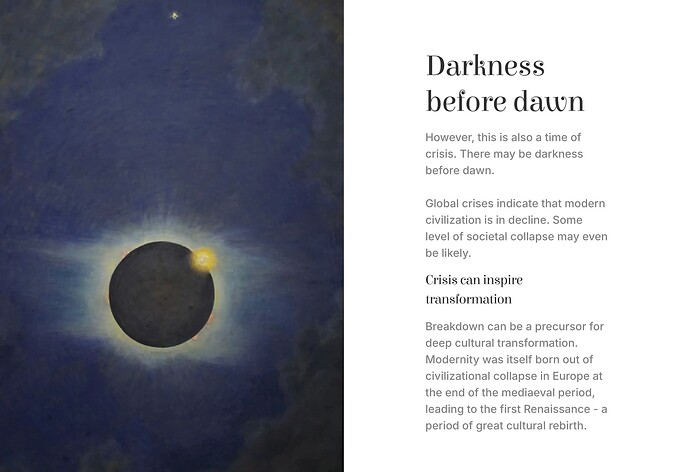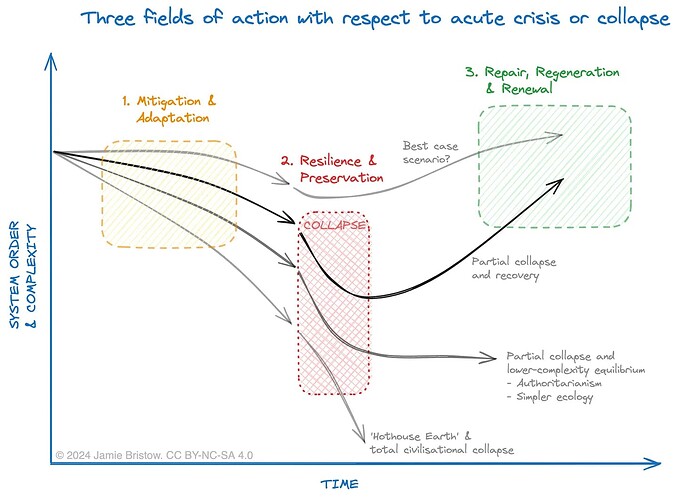UPDATE: 2025-04-04: we now have a lexicon entry Dark Renaissance
Term for the second renaissance story where there is “darkness before dawn" aka "winter before spring” . That is some kind of “dark age” before the (second) renaissance – as there was in the last renaissance where you had the mini-dark age of the 14th century (famine, black death with a third to half of European population dying).
In this case, seeds may go in the ground and hibernate for a while – “Last through winter until spring” – rather than renaissance happening immediately.
Section on SecondRenaissance.net
There is a section on this in 2R home page core narrative
This is a topic that is worth its own mini-essay.
3 pathways
Jamie Bristow and Rosie Bell wrote a 3 pathways piece with this summary graphic.
Dark Renaissance can be thought as a name for the middle pathway(s) especially the one where there is a recover. ie. there is a collapse but is not total and there is some recovery in the long-term.
Renaissance and dark renaissance as alternatives to the prevention and doomerism narratives
Here are some notes written in dialog with Jamie Bristow in May 2024 that fed into the 3 pathways narrative (see below):
• original narrative: there is potential disaster/problem (climate change)
• we can prevent it by taking action now … (Prevention scenario)
• growing sense that we weren’t doing that and weren’t going to do that => doomerism and resignation (adaptation as best framing)
• so end up with 2 options: a) averters b) doomers (there is, of course, in mainstream culture pure denialists who think there is no problem but within space of those taking action on this issue these aren’t relevant)
• what if there were a third option?
• renaissance: this recognizes significant likelihood of breakdown on more or less serious scale and sees that after (and indeed through this) there is the possibility of renewal.
• or, for those who like their game of thrones: winter is coming, but so is spring.
• emphasize this option does not and should not minimise the likely awfulness of major societal breakdown, nor should it impede ongoing efforts to avoid such breakdown or, at least ameliorate the worse effects of that.
• what it does do is to avoid the trap (that we increasingly see) of either a blind optimism verging on denial or a simple doomer resignation
Aside (do we include because it can sound like we are welcoming breakdown): pursuing the metaphor, winter may even be necessary for spring. That is, without some kind of breakdown, the profound change (transformation) that we need may be impossible. We once asked a zen master: when do people change and he answered when they have to. We often only change - and grow -
Caveat: or course this story is only valid if collapse is not terminal. If winter is so severe that all seeds die then there is no spring. In risk terminology, these would be existential risks.
Winter is coming … and so is spring
This is one succinct way to describe the positive perspective on this.

